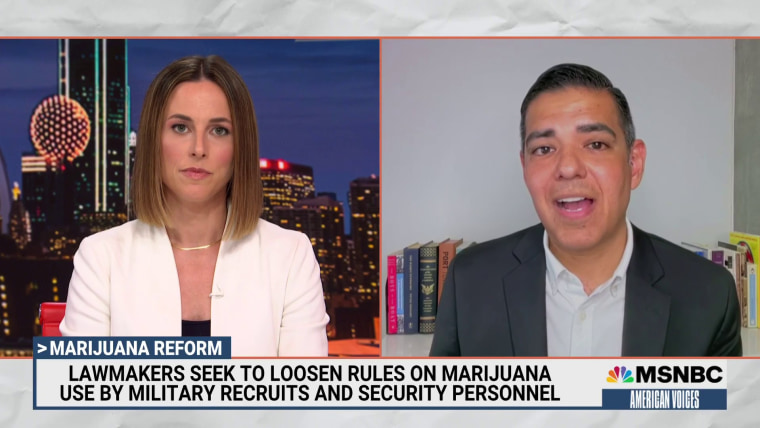You can always count on the House Freedom Caucus for two things. First, the far-right group’s members will constantly press their fellow Republicans to move even further to the right, no matter how much it might damage the party and their colleagues’ election prospects. Second, and much more satisfying, their fumbles, stumbles and lack of cohesion will make excellent fodder for Washington drama.
The latter doesn’t at all excuse the former and the damage the group has wrought over the last eight years. It does, though, lead to episodes like the recent Schrödinger’s cat-esque vote to expel Rep. Marjorie Taylor Greene, R-Ga., from their ranks over her relationship with Speaker Kevin McCarthy, R-Calif. According to a new report from CNN, that’s only the most public and dramatic episode inside what has become a band of rebels without a cause. And Monday evening's dramatic escalation in the far right's showdown with McCarthy over government spending brings into question just how substantial a role the House Freedom Caucus is actually poised to play moving forward.
When you consider the roadblocks the Freedom Caucus is sure to erect in McCarthy’s path, it starts to look downright Sisyphean.
Because as morbidly entertaining as they can be, the Freedom Caucus’ foibles aren’t good news for the rest of us. Though Congress returned to Washington on Monday, lawmakers will spend just 12 days working before they leave again for the August recess. The most pressing issue on the table is passing the required 12 annual appropriations bills for the next fiscal year before the current fiscal year finishes at the end of September. With such votes being struggles even in periods of single-party control, getting these dozen bills passed was already a herculean task. When you consider the roadblocks the Freedom Caucus is sure to erect in McCarthy’s path, it starts to look downright Sisyphean.
Part of the problem is that what was once a group of just nine tea party Republicans and rabble-rousers has more than quadrupled over the years, and not everyone is fully committed to making it a success. “One GOP member complained that there are around a dozen lawmakers who never show up to weekly meetings,” CNN reported Monday. “Another lawmaker accused some of their Freedom Caucus colleagues of just using their membership as ‘primary insurance,’ to help protect them from a potential far-right challenger.”
At the same time, the group’s aims have become muddled, to say the least. Some members want to stymie the House leadership at every turn, while others. The first group makes up the core of the “chaos caucus” that I’ve written about before, which briefly seized control of the House floor last month to protest the debt ceiling deal between McCarthy and President Joe Biden. The second includes Greene and Judiciary Committee Chair Jim Jordan, R-Ohio, who has managed to keep one foot in both leadership and the Freedom Caucus so far.
It’s a position that Jordan has maintained better than Greene in part because he was the caucus’ first chair. He also has backed McCarthy without publicly dissing the other members of the Freedom Caucus, as Greene has in the past. The goodwill toward Jordan seems to be wearing thin, though: CNN reports that caucus member Bob Good of Virginia “has called Jordan a RINO — ‘Republican in Name Only’ — behind his back.” (Good’s spokesperson denied that claim to CNN.)
But — and I can’t believe I’m saying this — in an interview with CNN before she was booted, Greene appeared to understand strategy better than most of her now ex-caucus colleagues:
“Everybody’s not understood why I didn’t get in the big fight on the speaker’s race, ‘Why didn’t she go to town on the debt ceiling bill and stuff? Why is she not doing the whole hold the floor circus show?’ It’s all about appropriations. That’s the only power Republicans have is appropriations and so that’s where I think we have to work.”
That focus on the longer-term results versus immediate tactics is something I’d previously believed Greene had no interest in pursuing. Which isn’t to say Greene is suddenly above all the sort of anti-Biden stunts her colleagues are obsessed with. She very much is still happy to push the sort of bait for the base that made her a star in the first place. But she gets that the power of the purse is the GOP’s strongest asset.
It’s on that front that the right flank has managed to get some results already, detrimental as they may be. McCarthy has been willing to yield to conservative demands that reframe the funding levels agreed upon in the debt deal as ceilings, rather than as the actual amounts to be spent. That move has made a government shutdown all the more likely, as Biden and the Democratic-controlled Senate won’t go for that sort of budgetary chicanery.
But there’s where the House Freedom Caucus’ disarray goes from comedy to potential tragedy. It’s impossible to articulate what the disjointed members would actually want, which dilutes their effectiveness as a bloc. That would be ideal in a world where McCarthy controlled more seats in the House, but instead it means there’s no telling what will anger just enough Freedom Caucus members that a spending bill suddenly goes down in flames. And the irony is that without the 12 appropriation bills’ going “regular order” to pass, the only real alternative is a must-pass omnibus bill that leadership cobbles together — the exact thing many Freedom Caucus members hate the most.
It’s literally impossible to know how much power Freedom Caucus Chair Scott Perry, R-Pa., has to herd this set of cats into line. The group’s bylaws are kept under lock and key, which is part of why it’s so hard to parse the rigmarole with Greene. On that front, it's telling that on Monday evening, when McCarthy received an ultimatum on government spending, it didn’t come under House Freedom Caucus letterhead but in a letter signed by 21 conservatives — including Perry. That leaves just about half of the caucus who aren't publicly on board with the demands the letter sets forward.
Twenty-one Republicans’ voting in opposition is more than enough to sink any legislation in this Congress. But the conspicuous lack of buy-in from the full caucus represents a level of autonomy that could see individual members come forward with their own additional demands down the line. It also just goes to show that if Perry can’t get everyone on the same page, the splintering of the Freedom Caucus will only serve to make the dynamics in the House even more unpredictable, with major consequences for the country moving forward.


